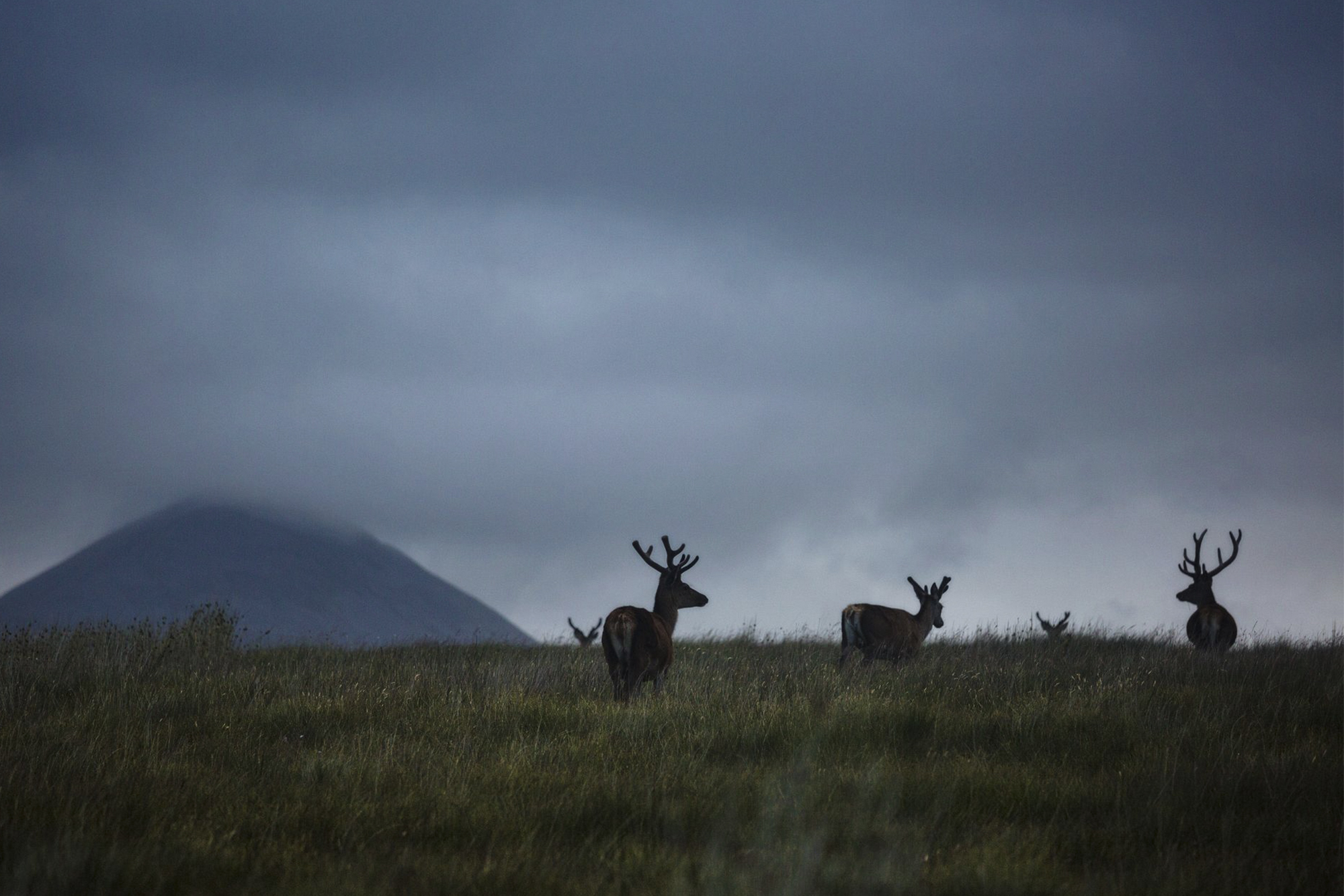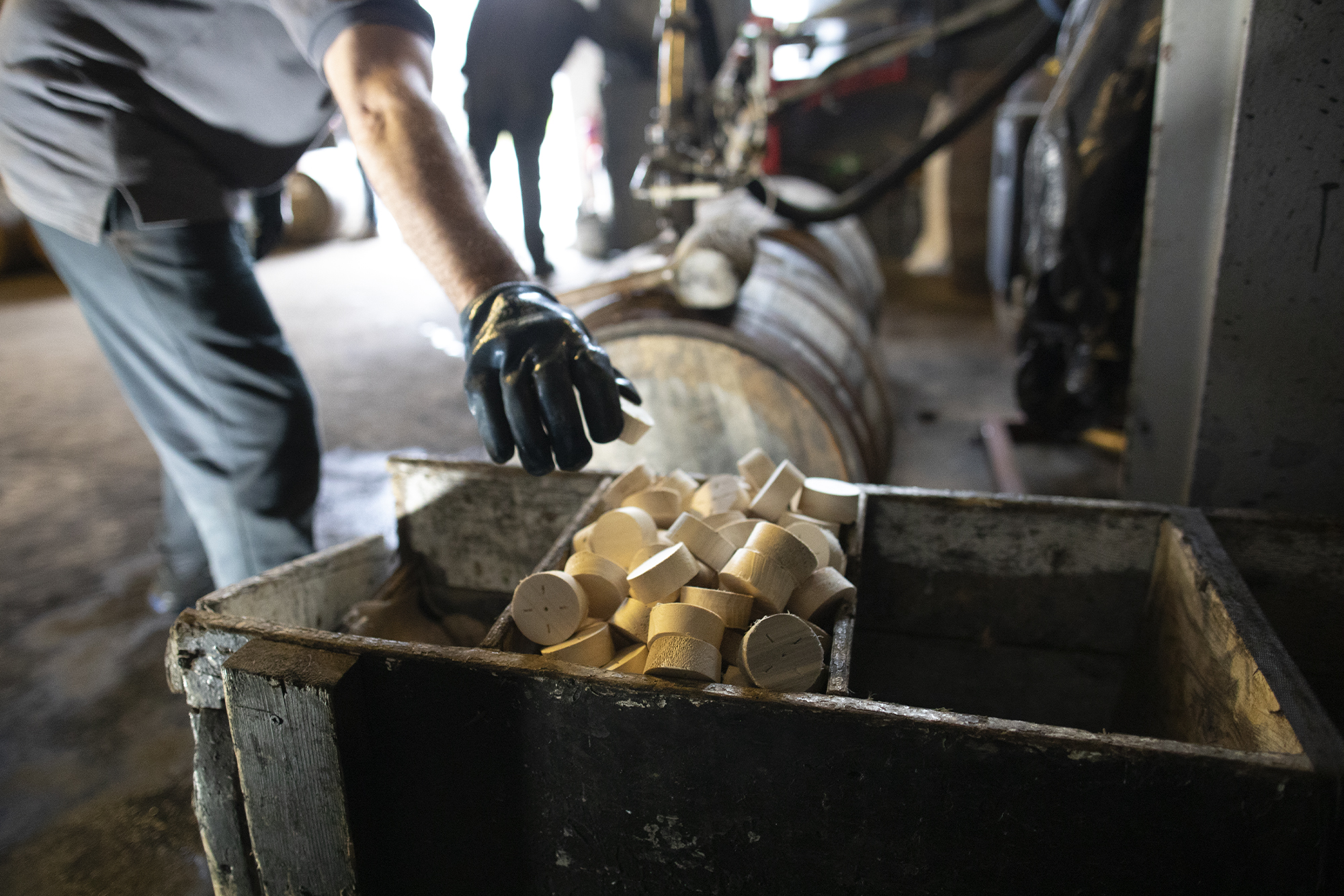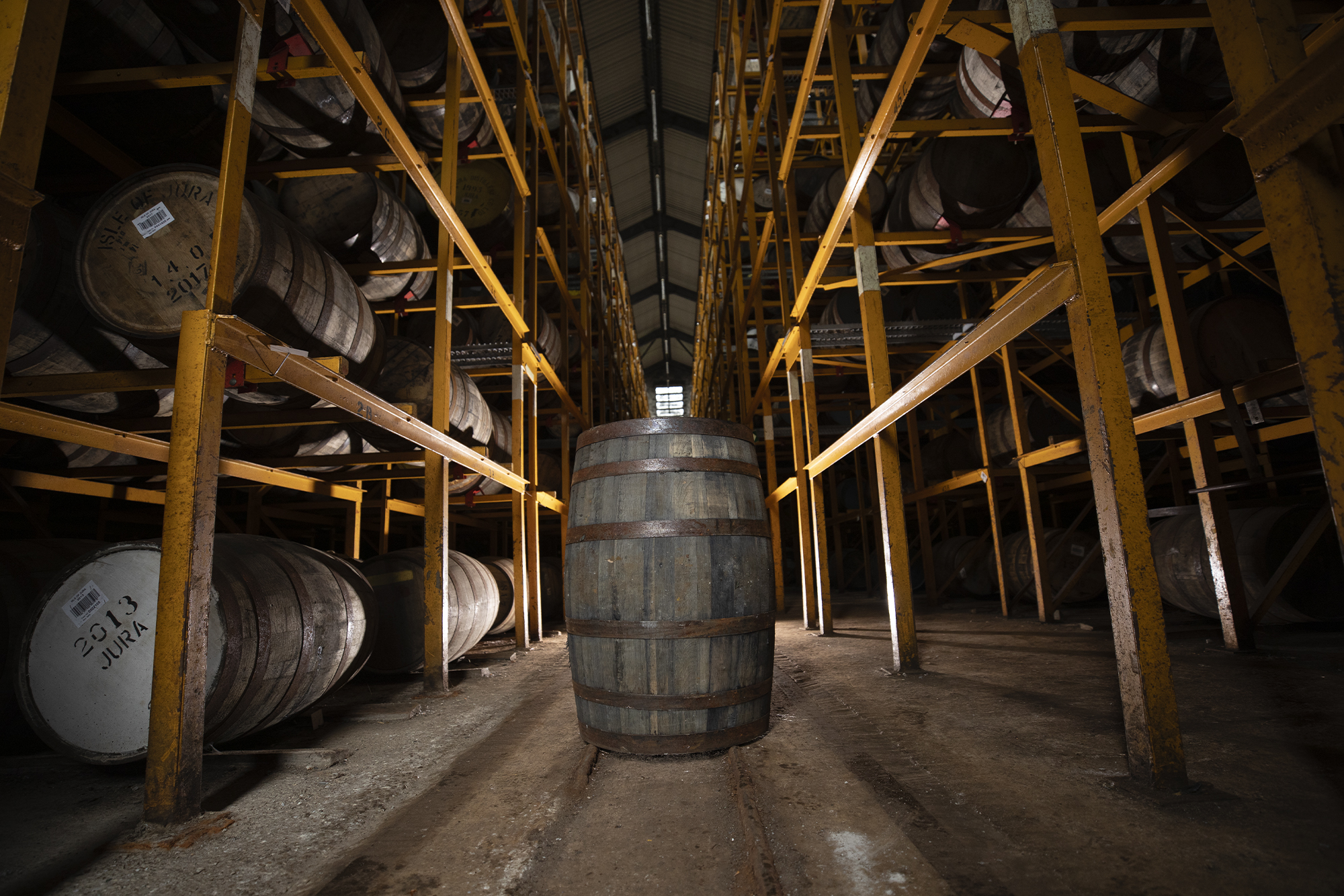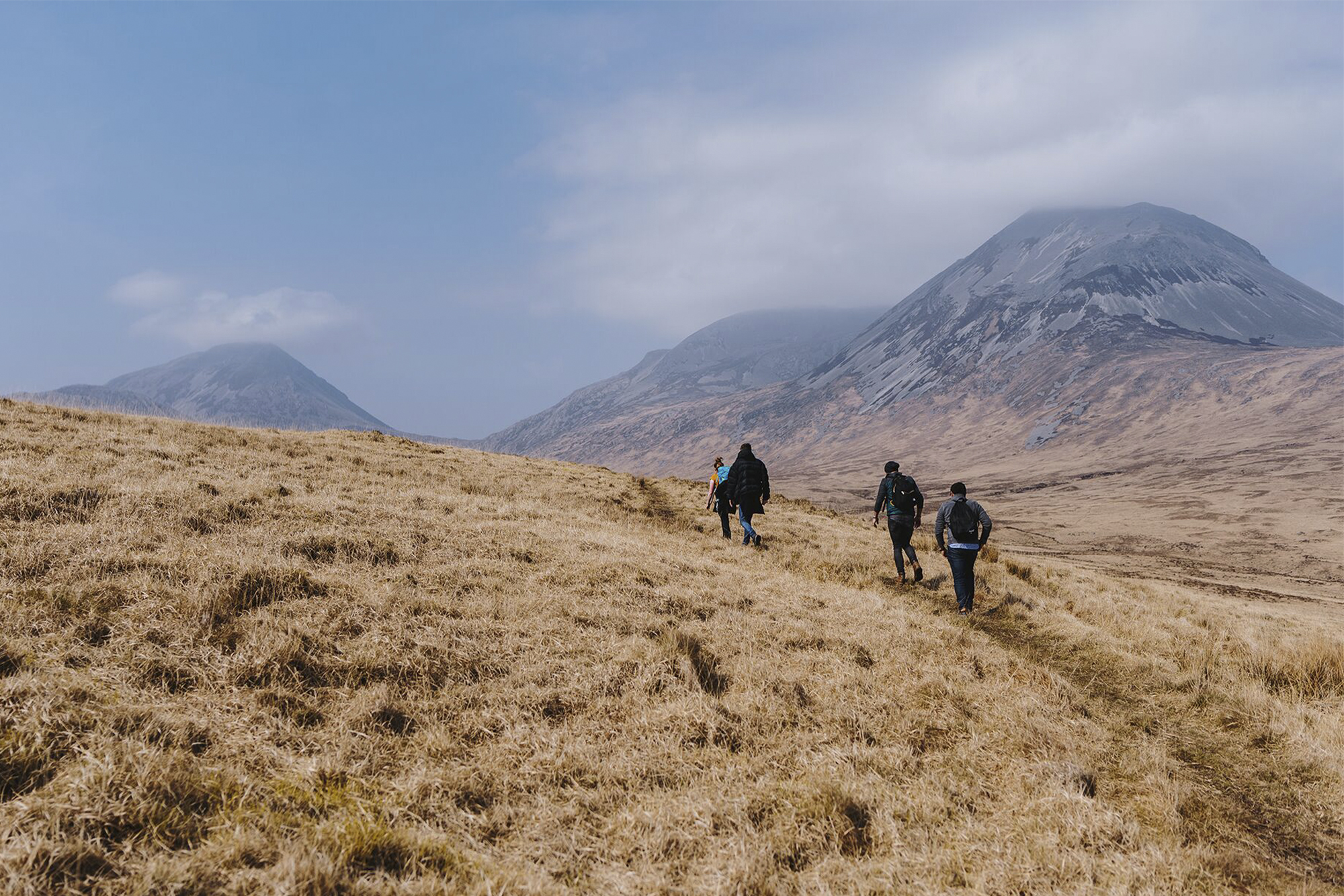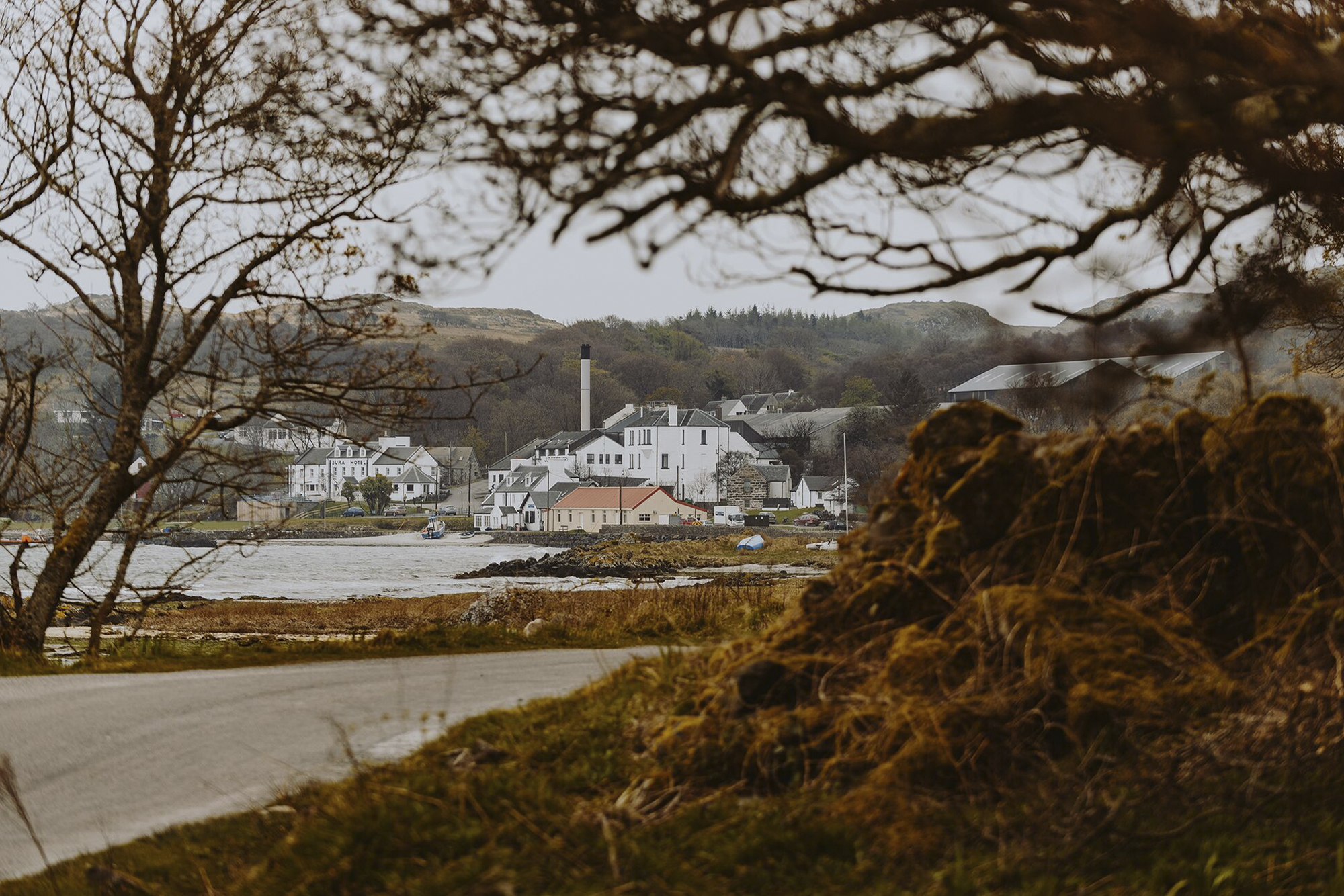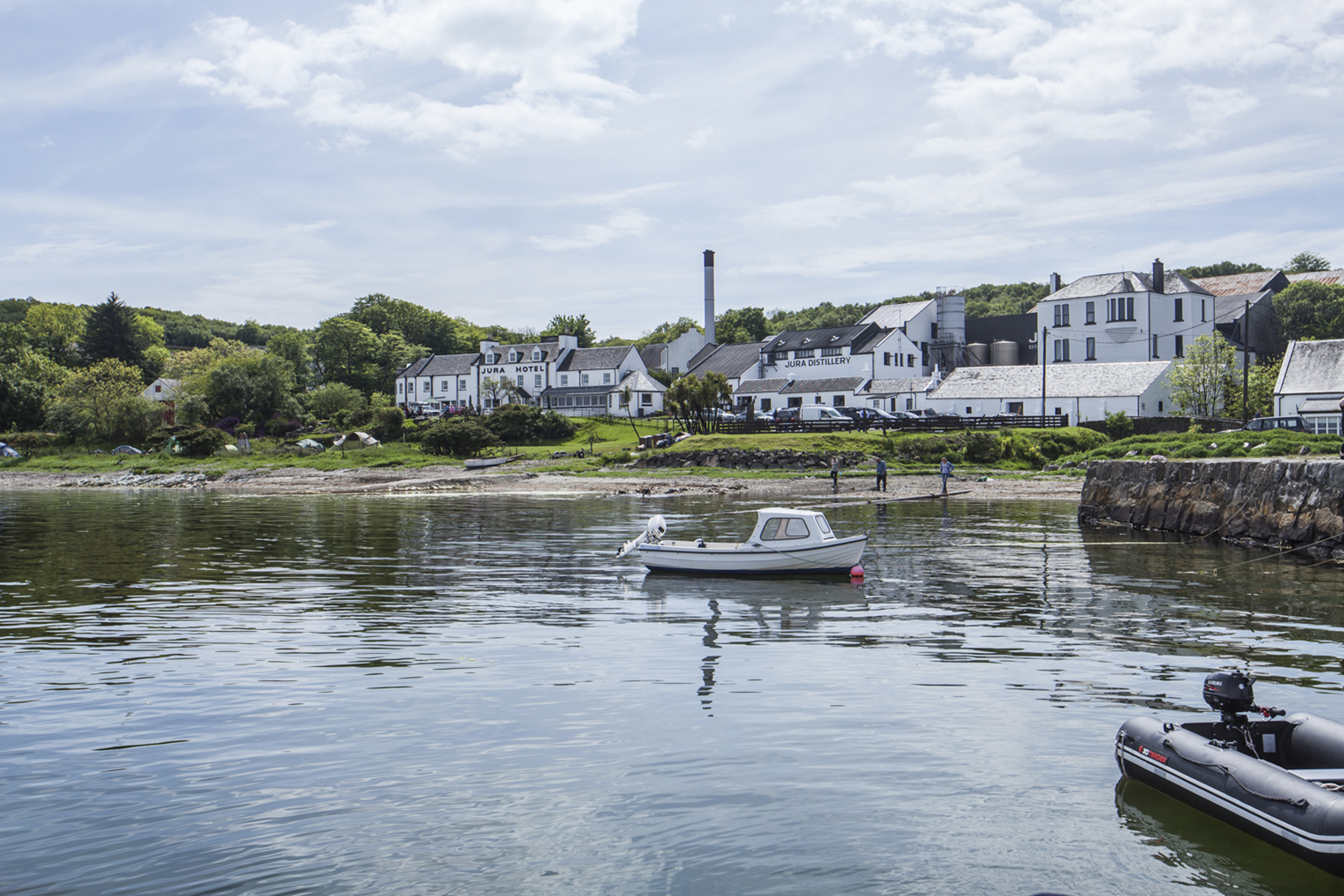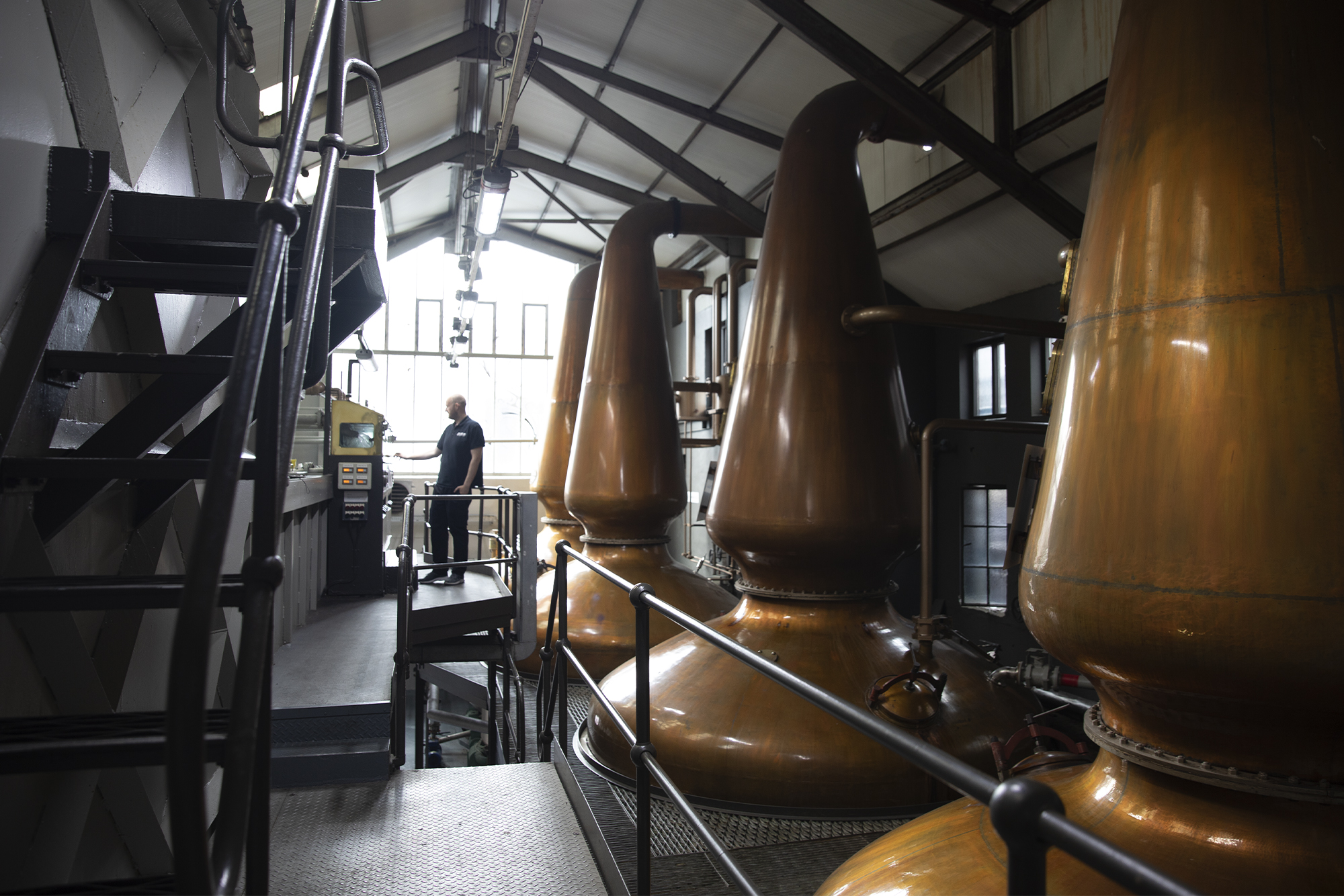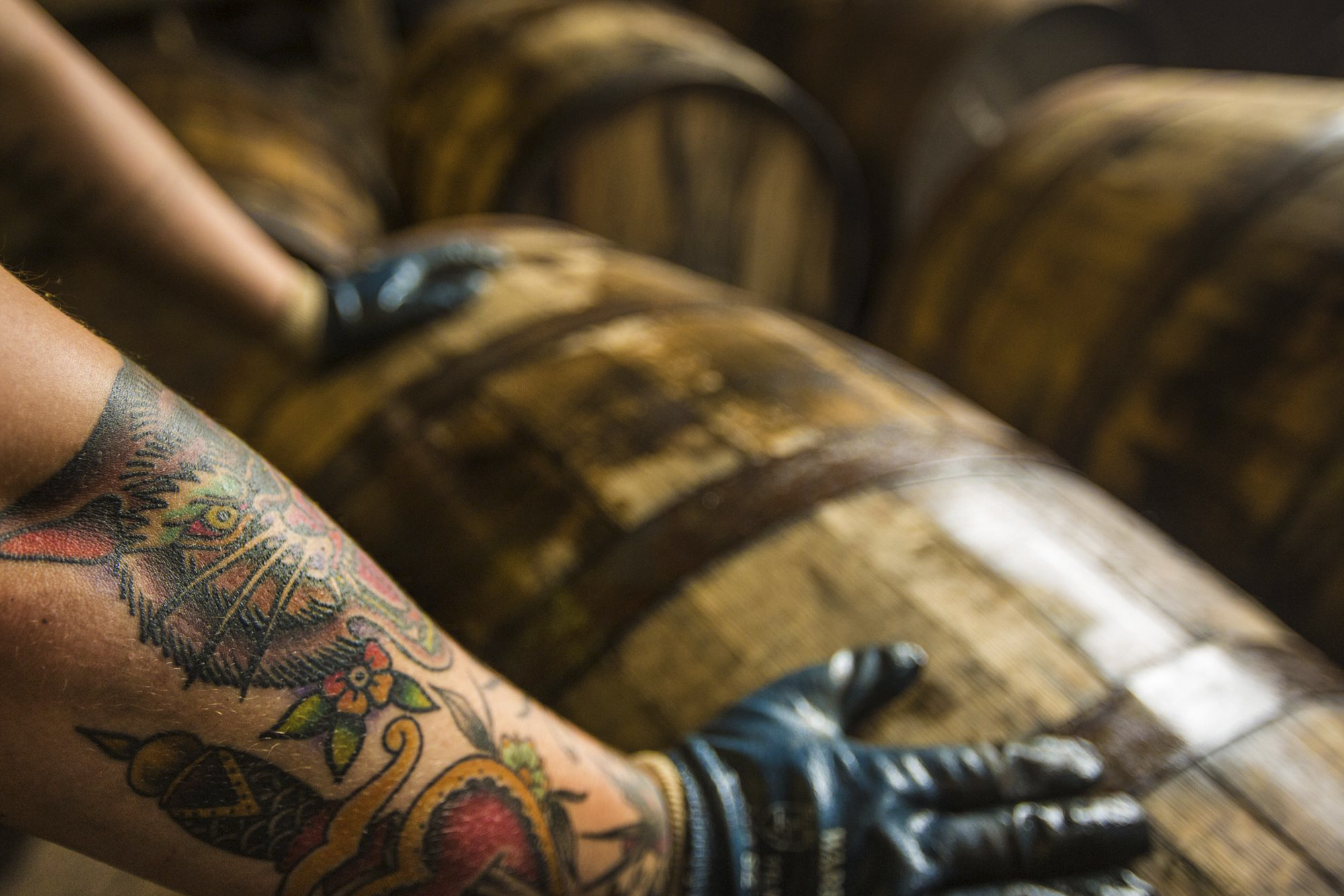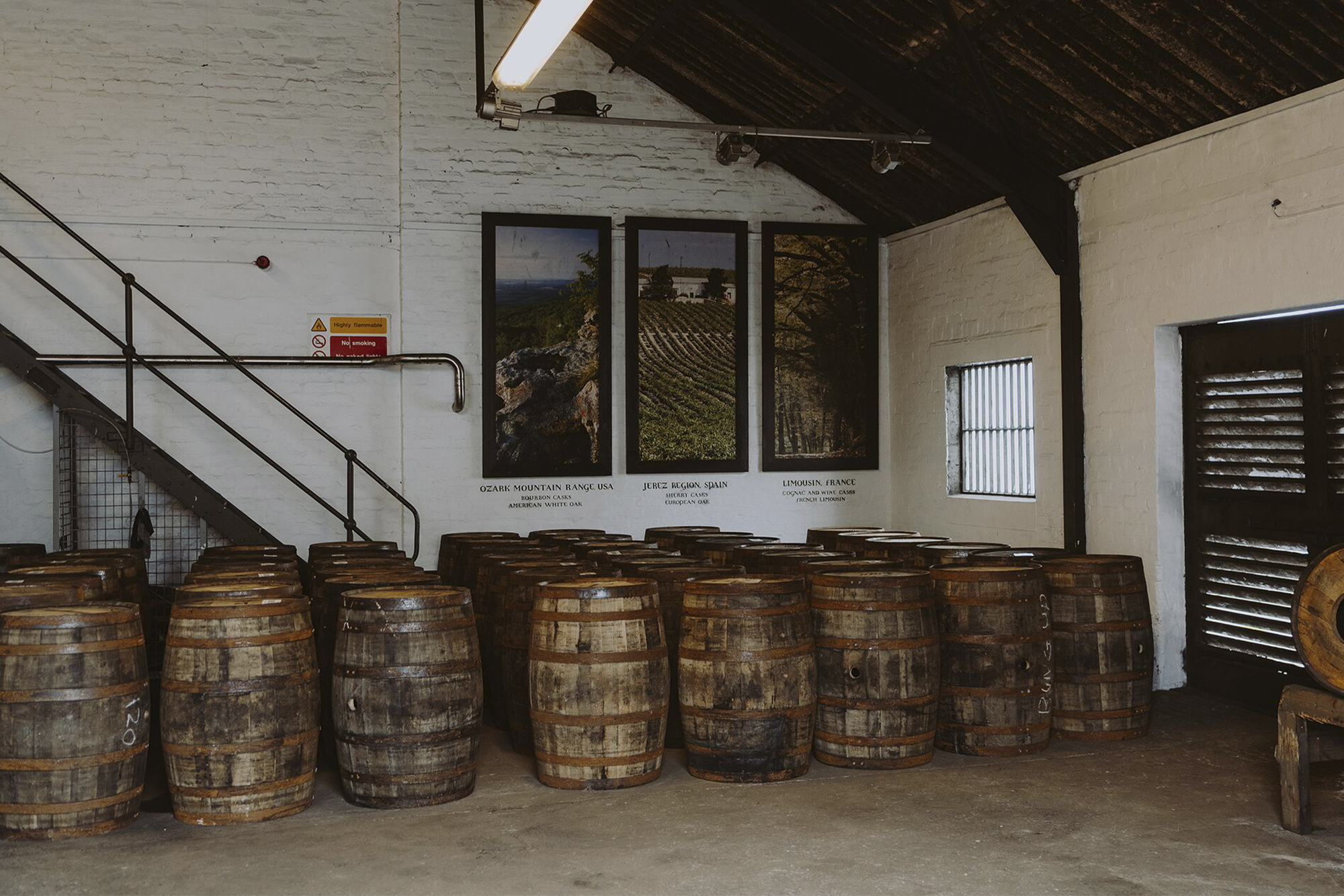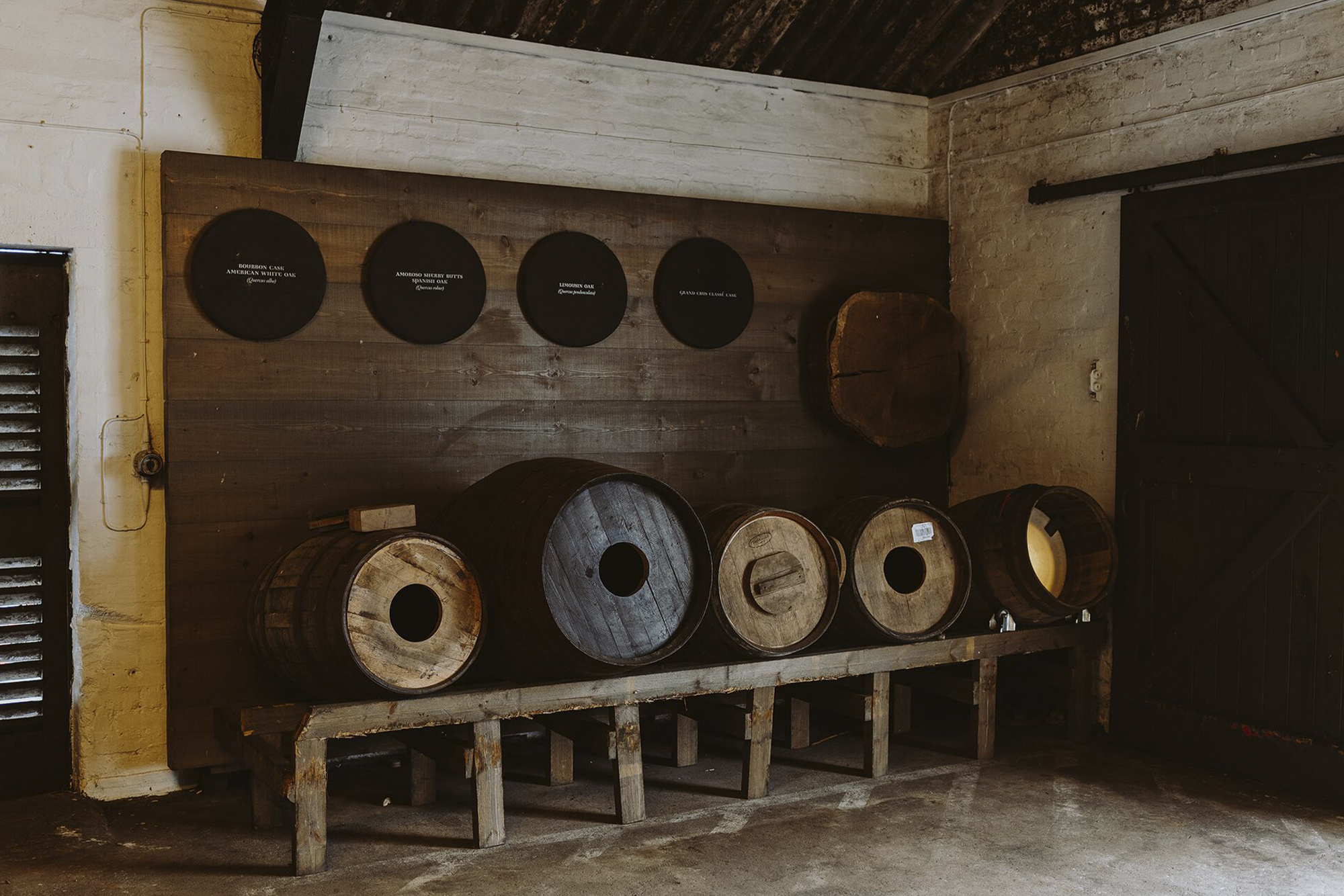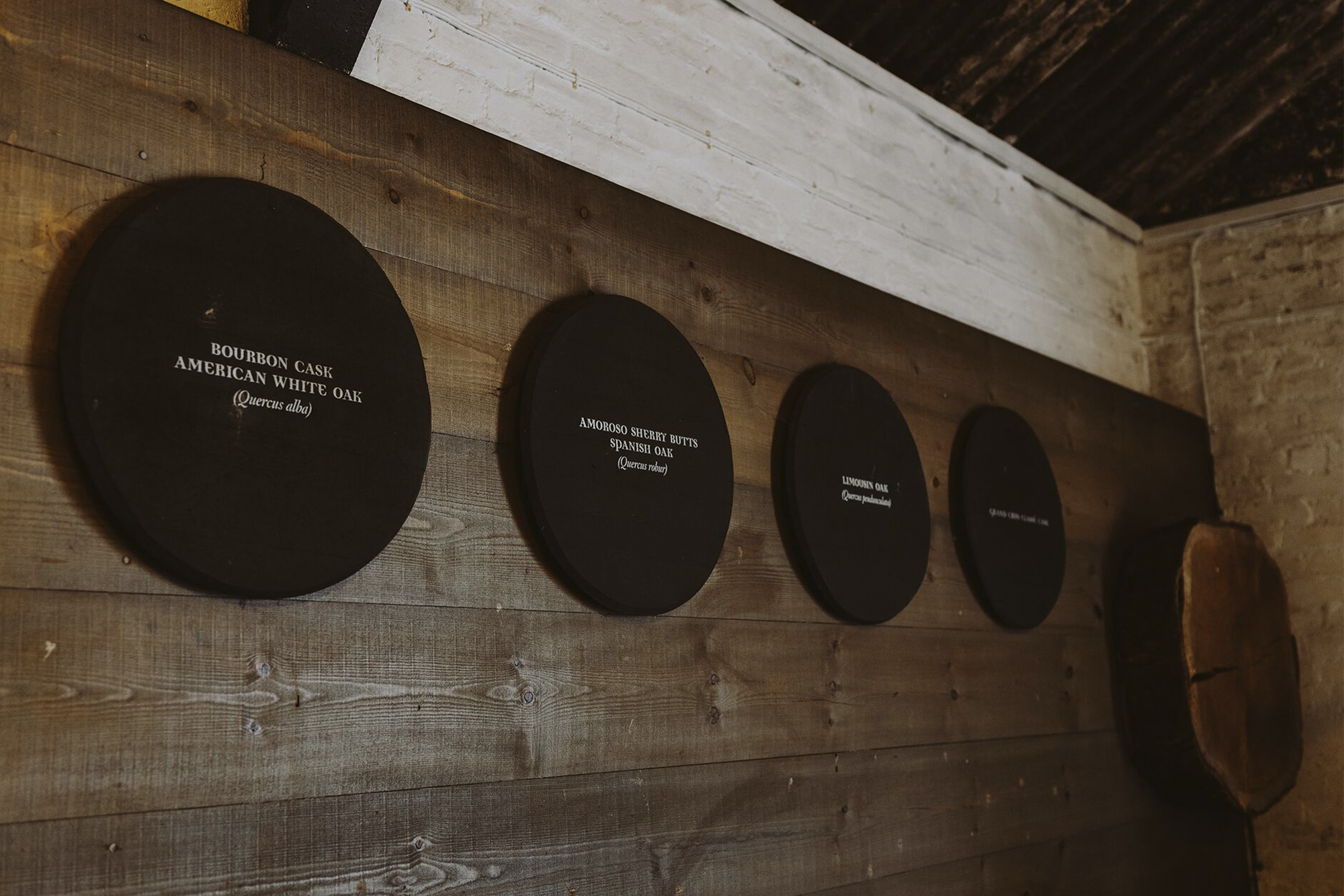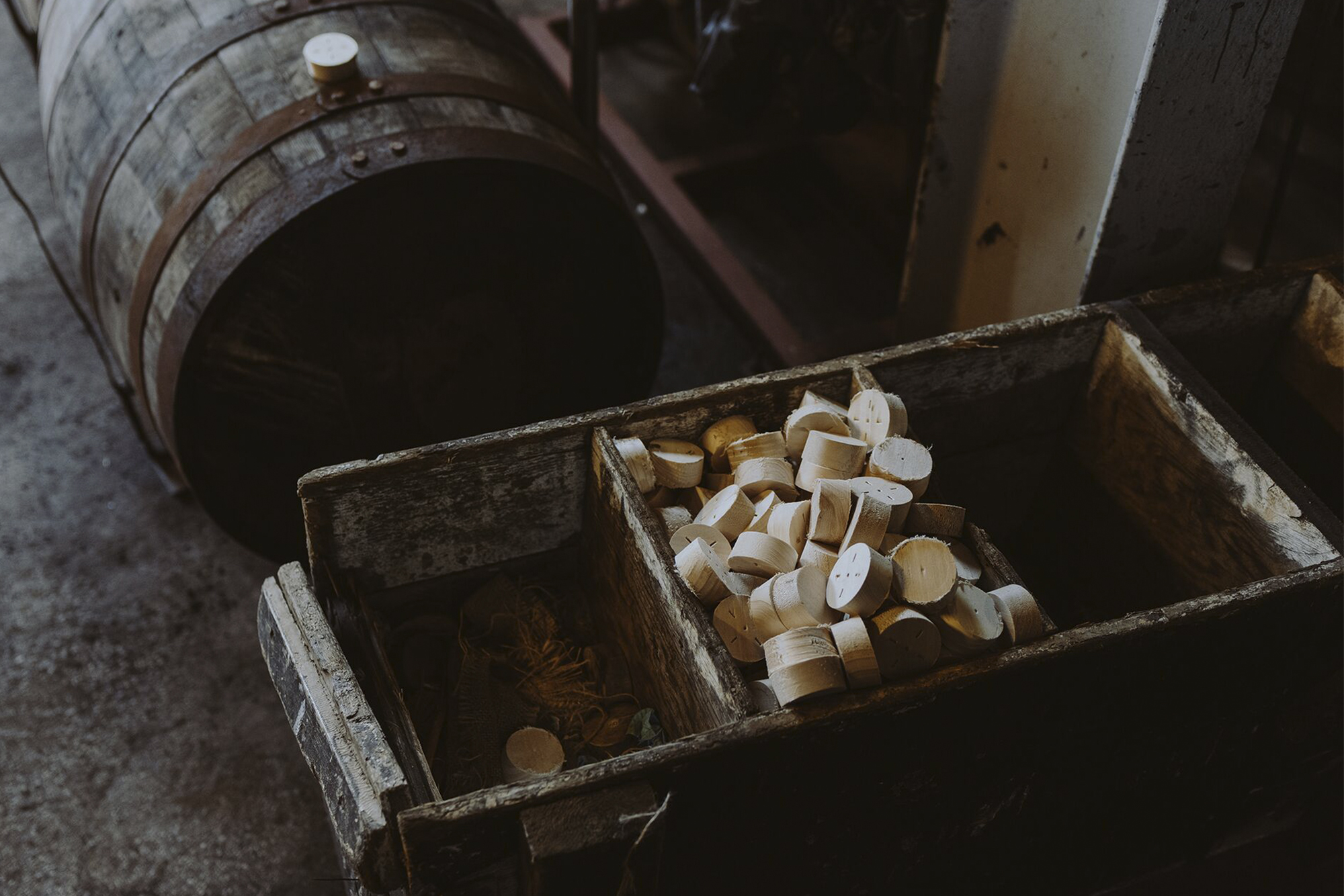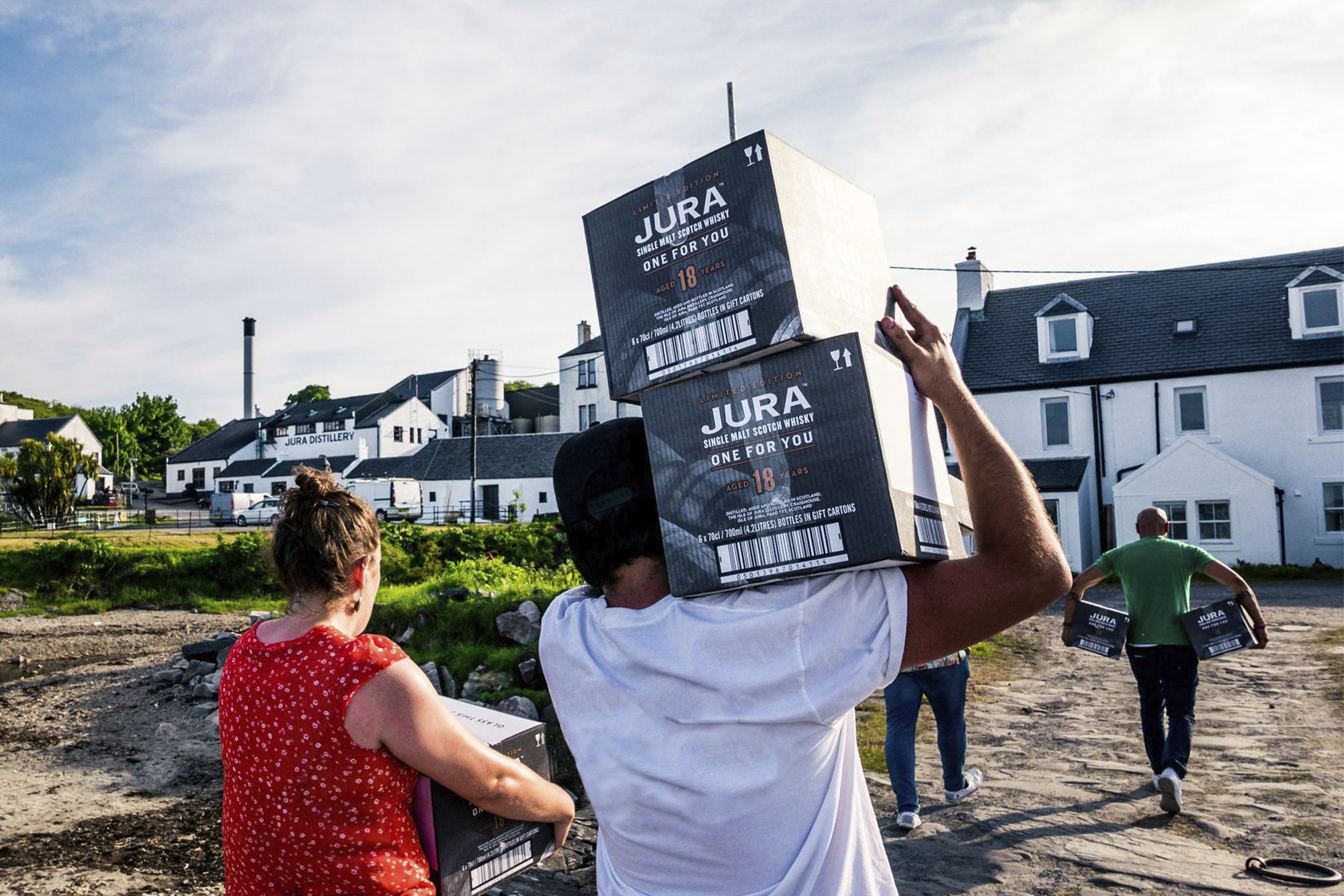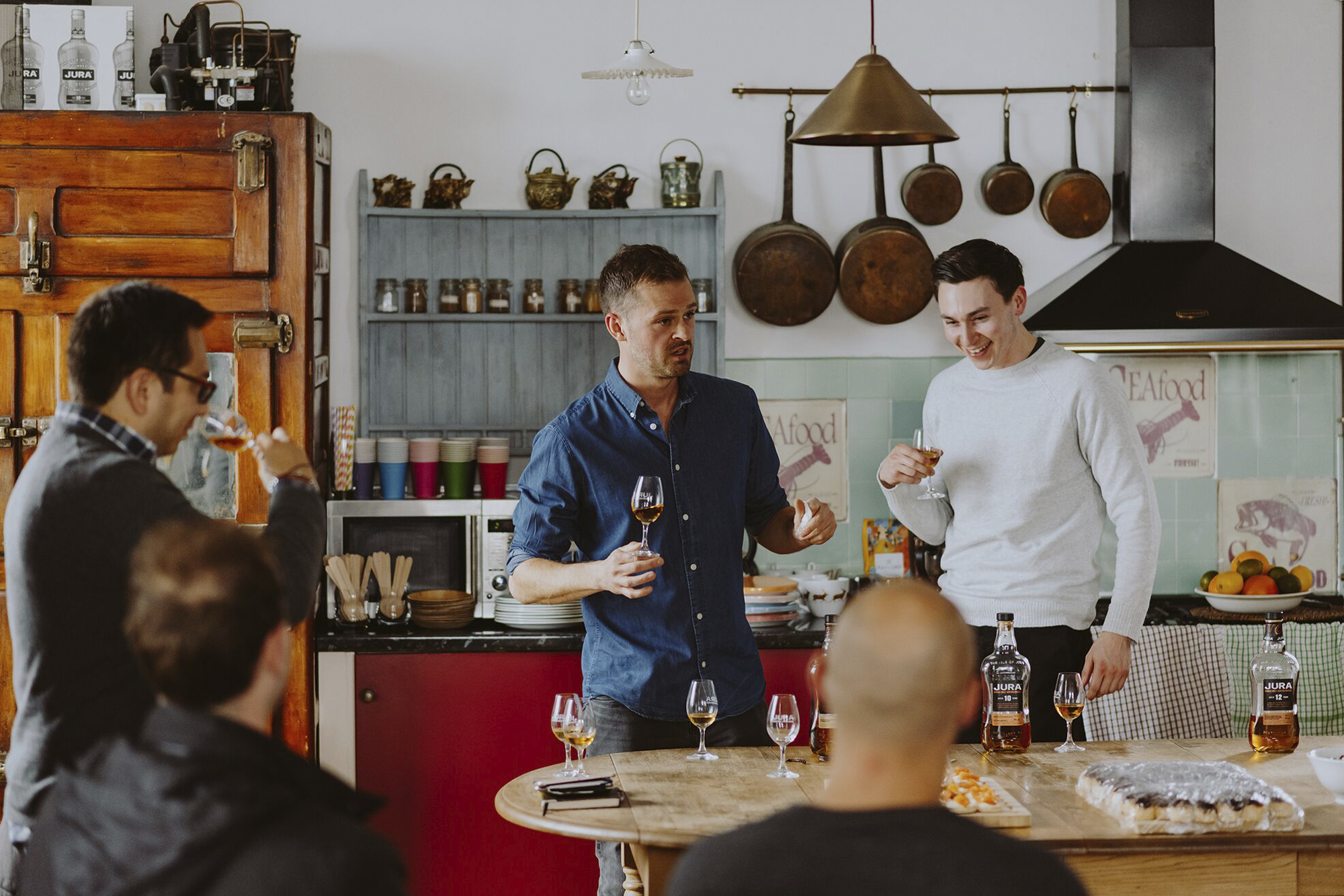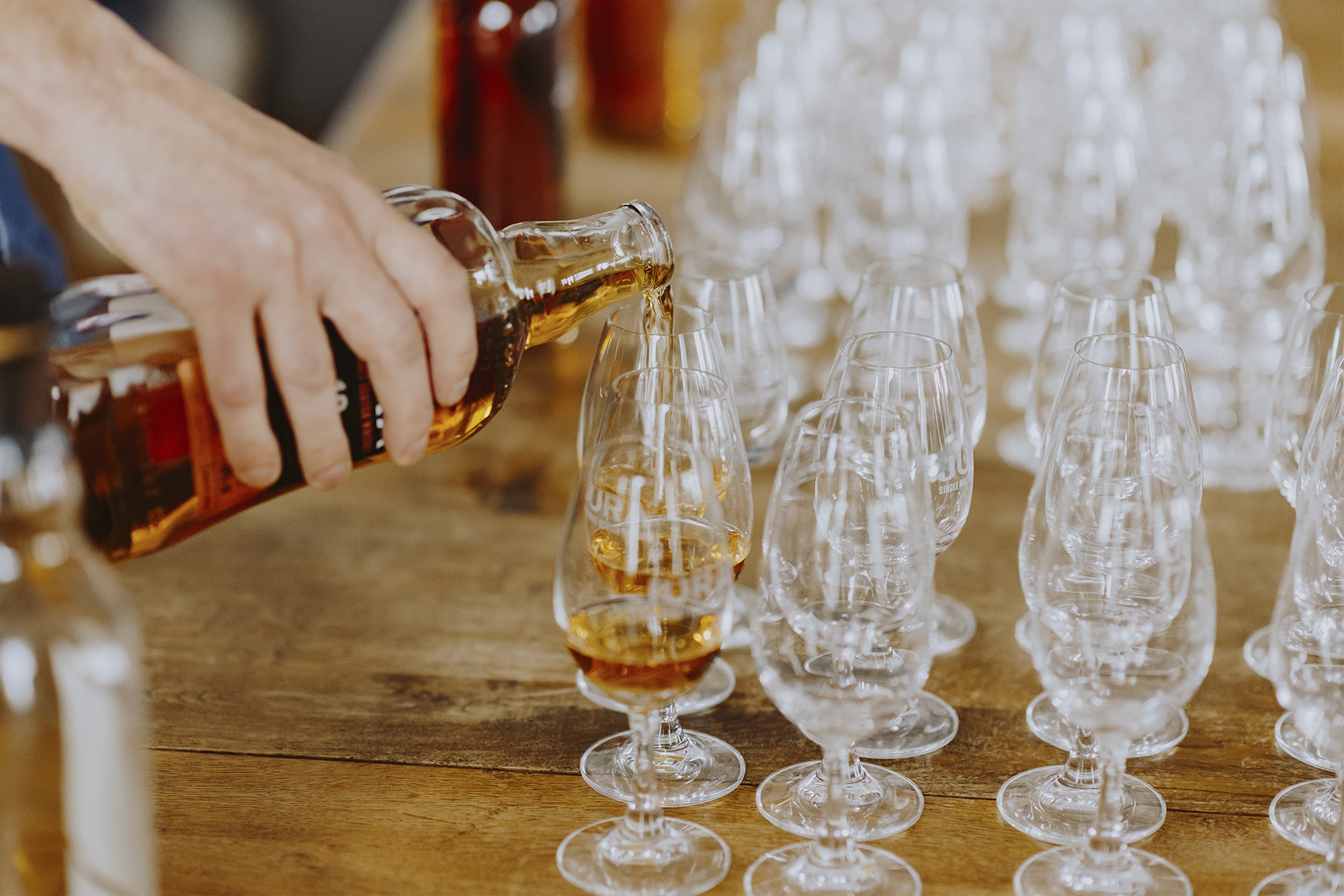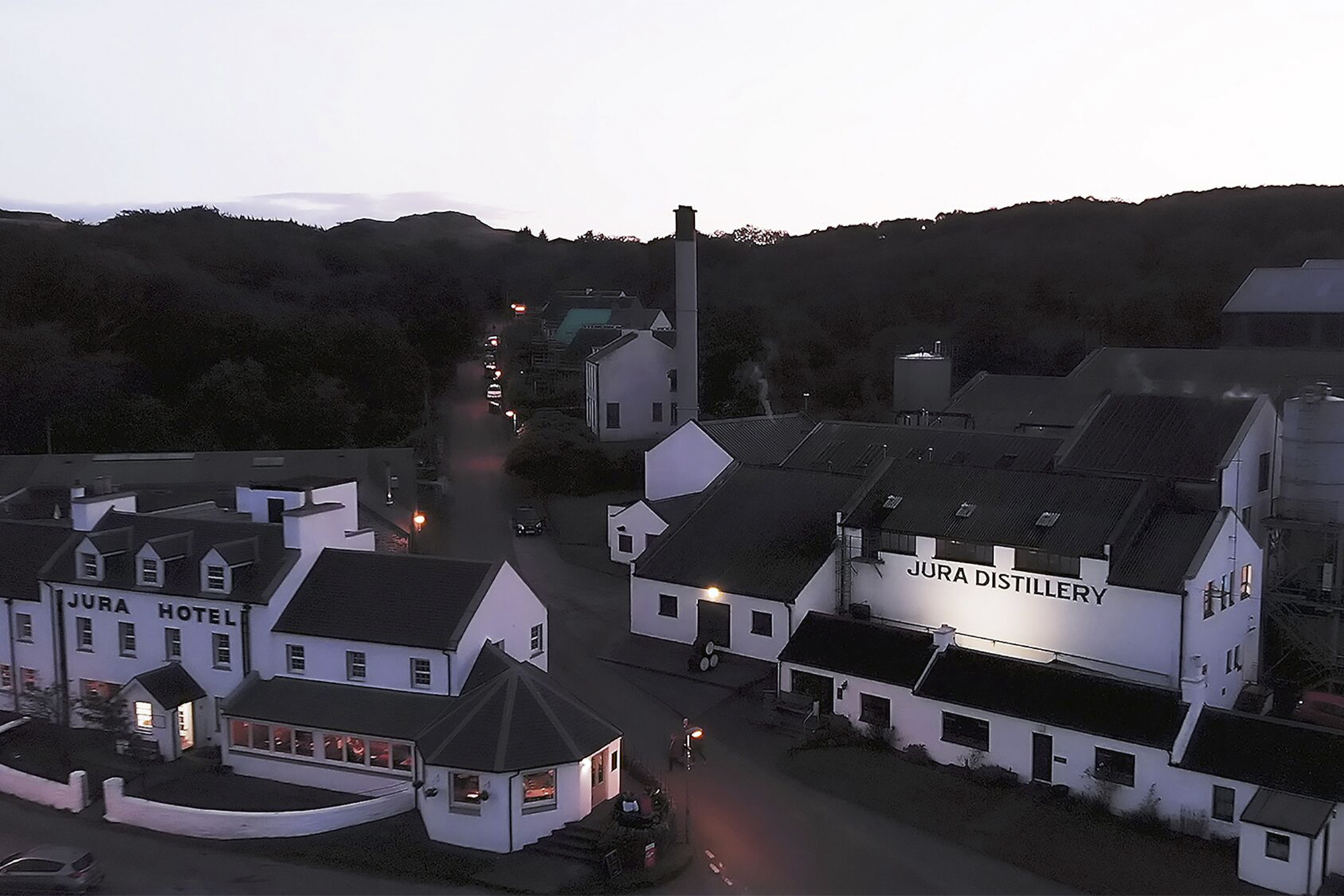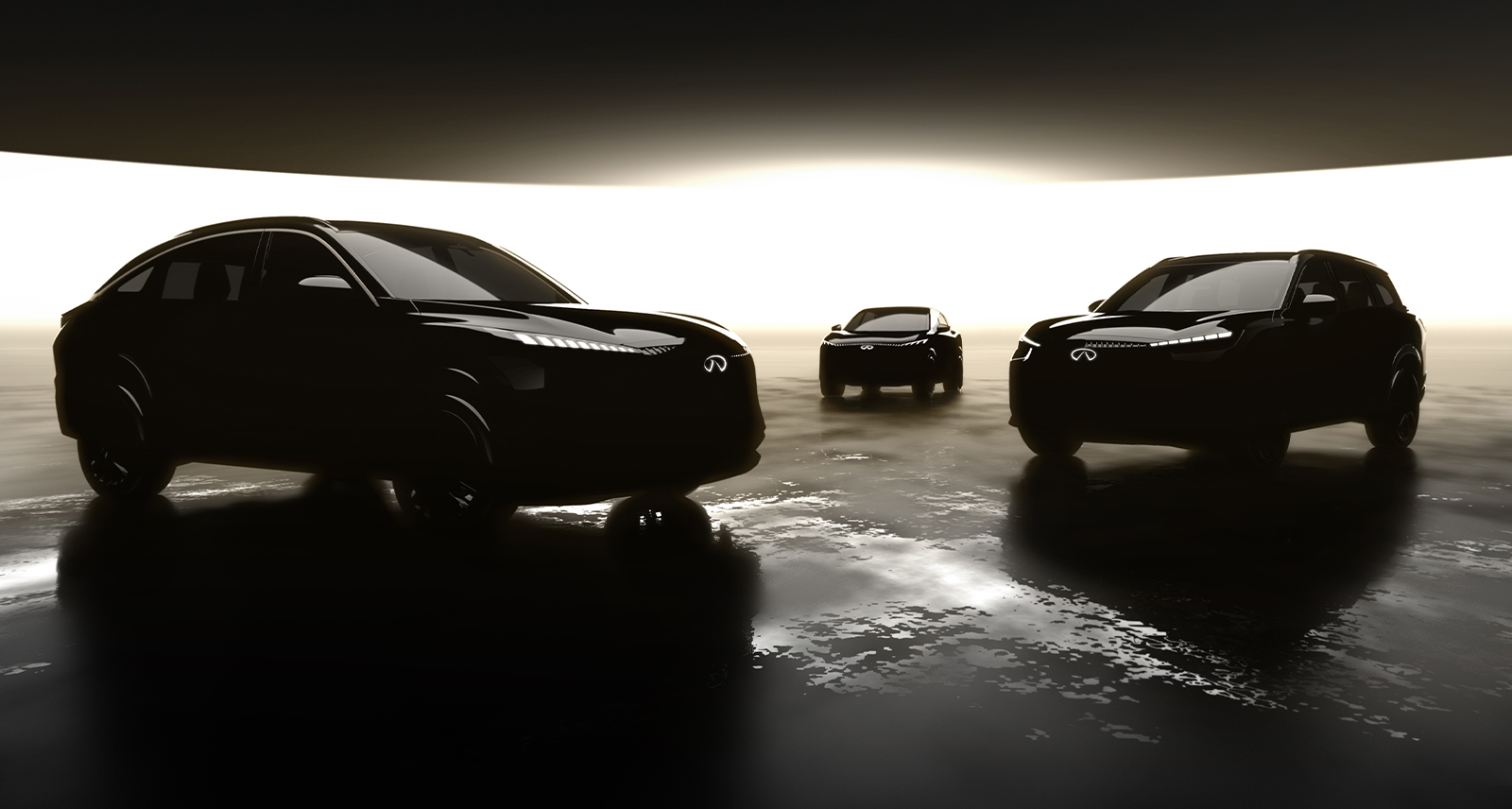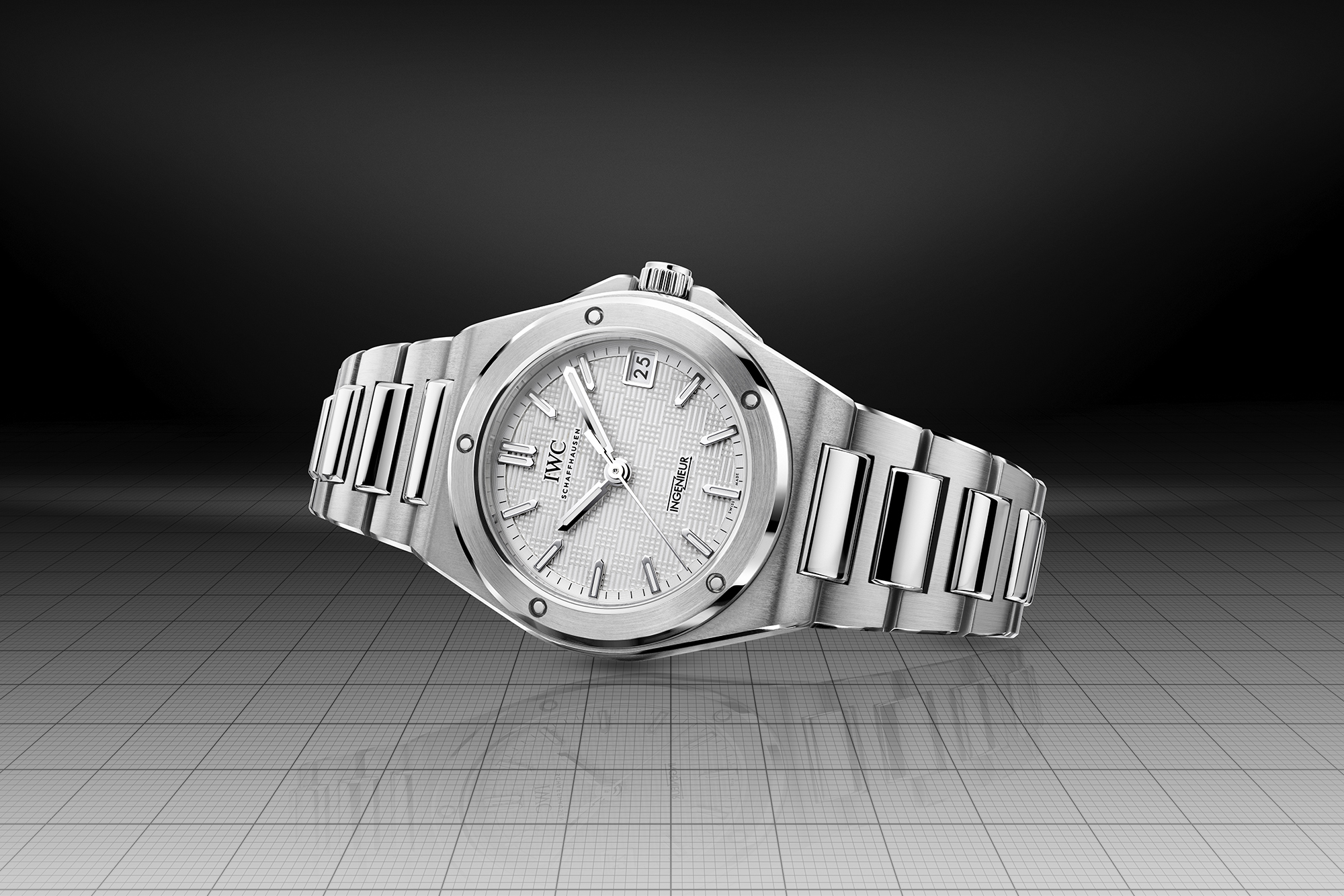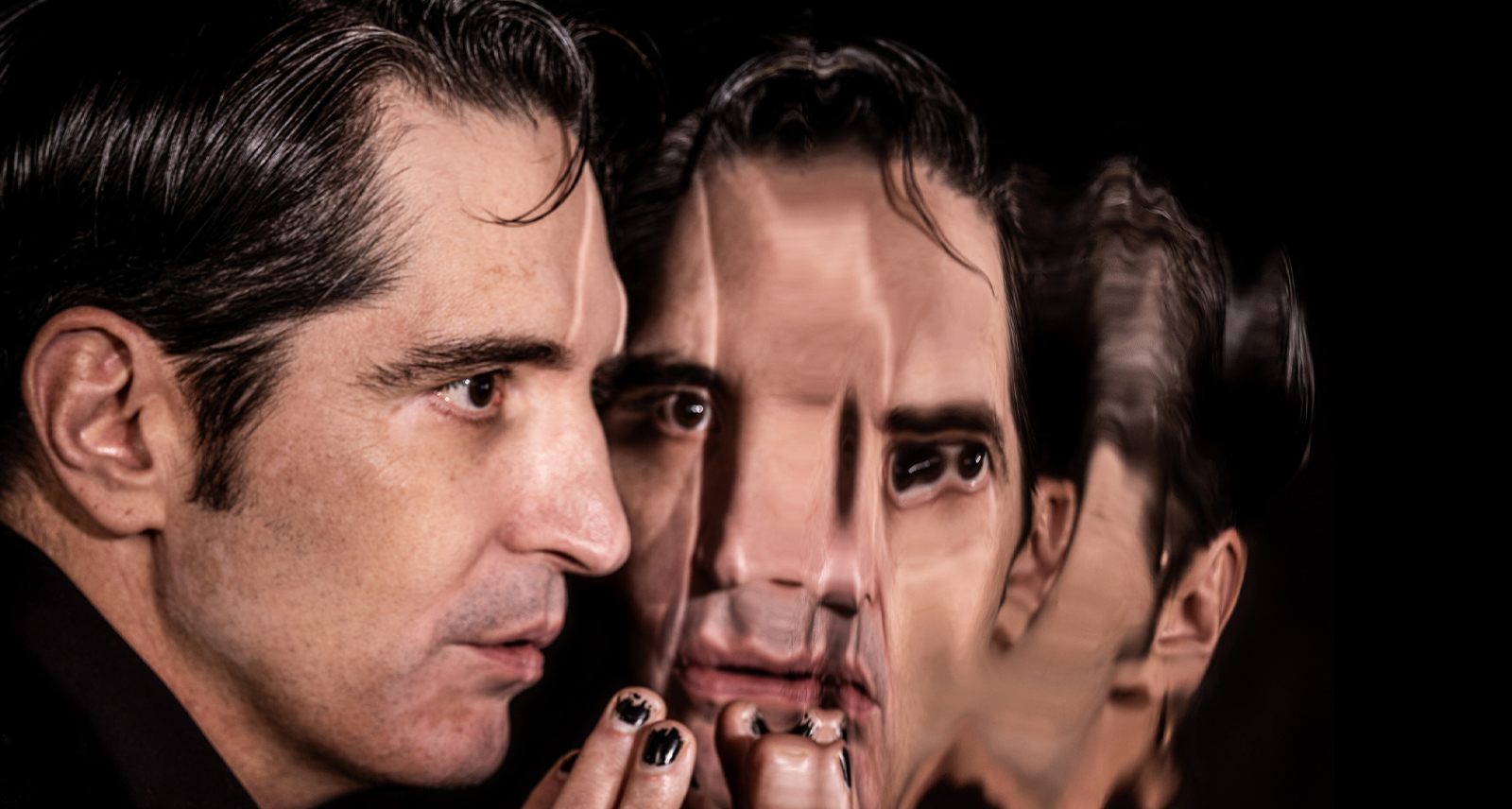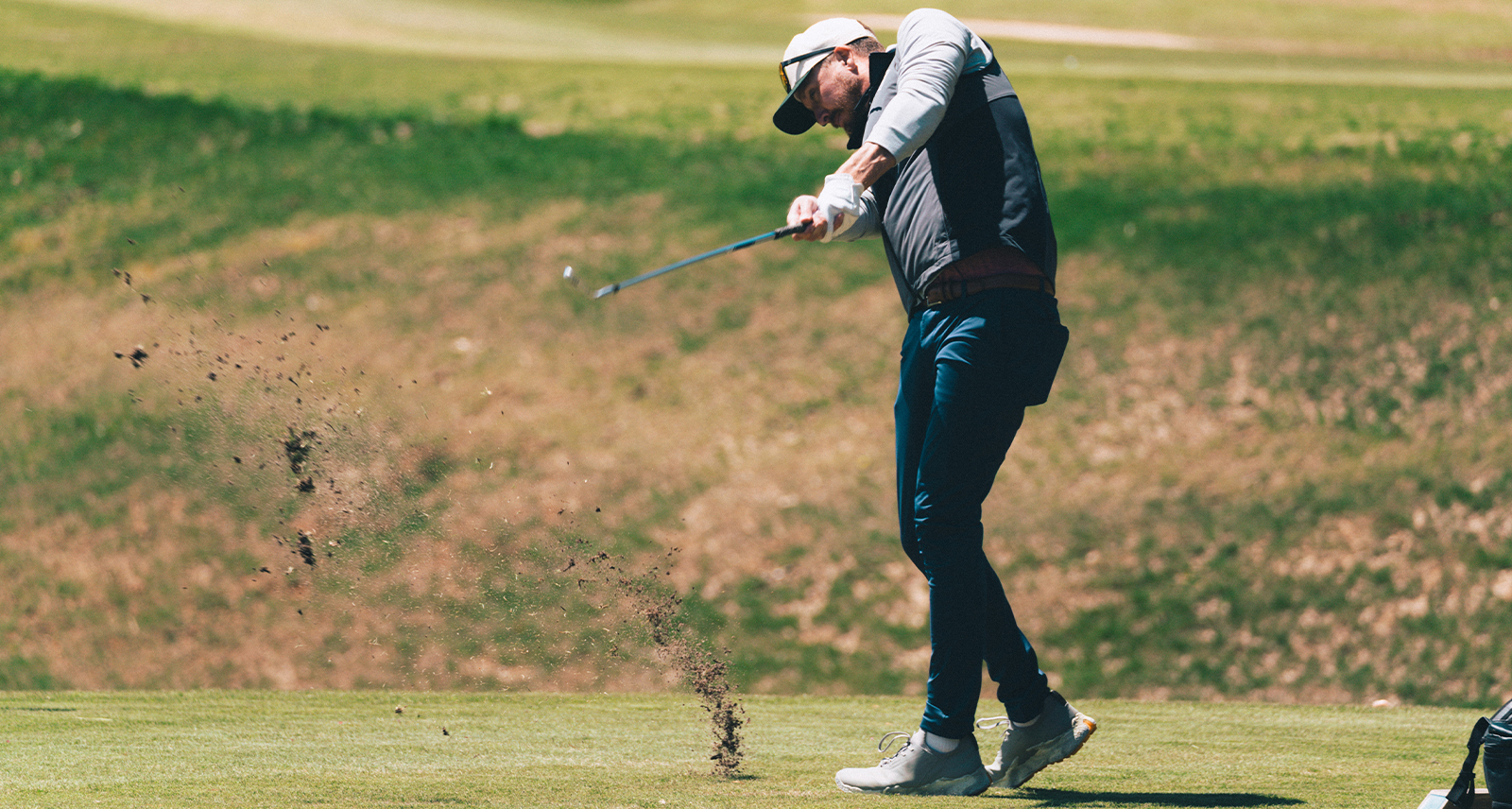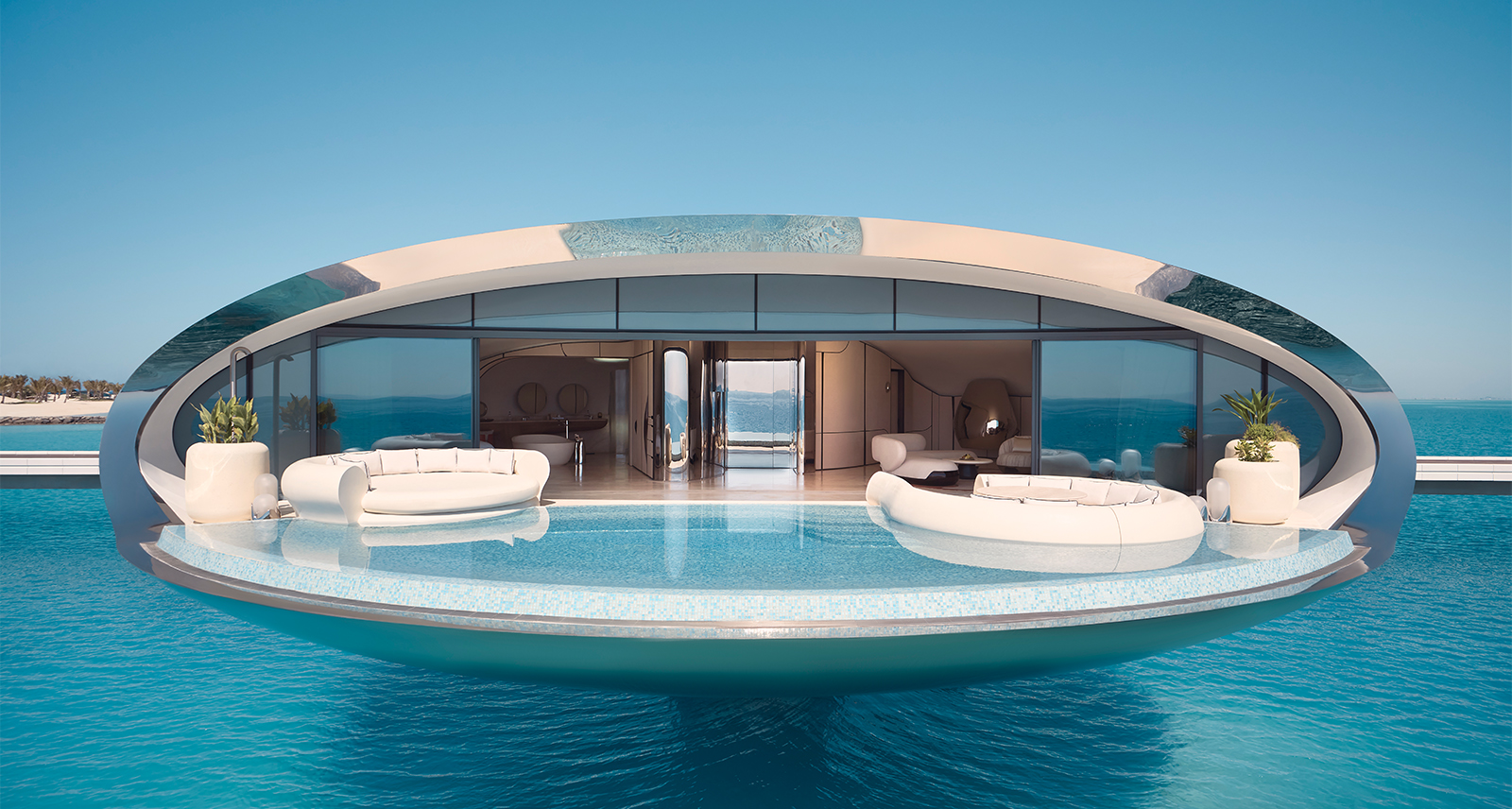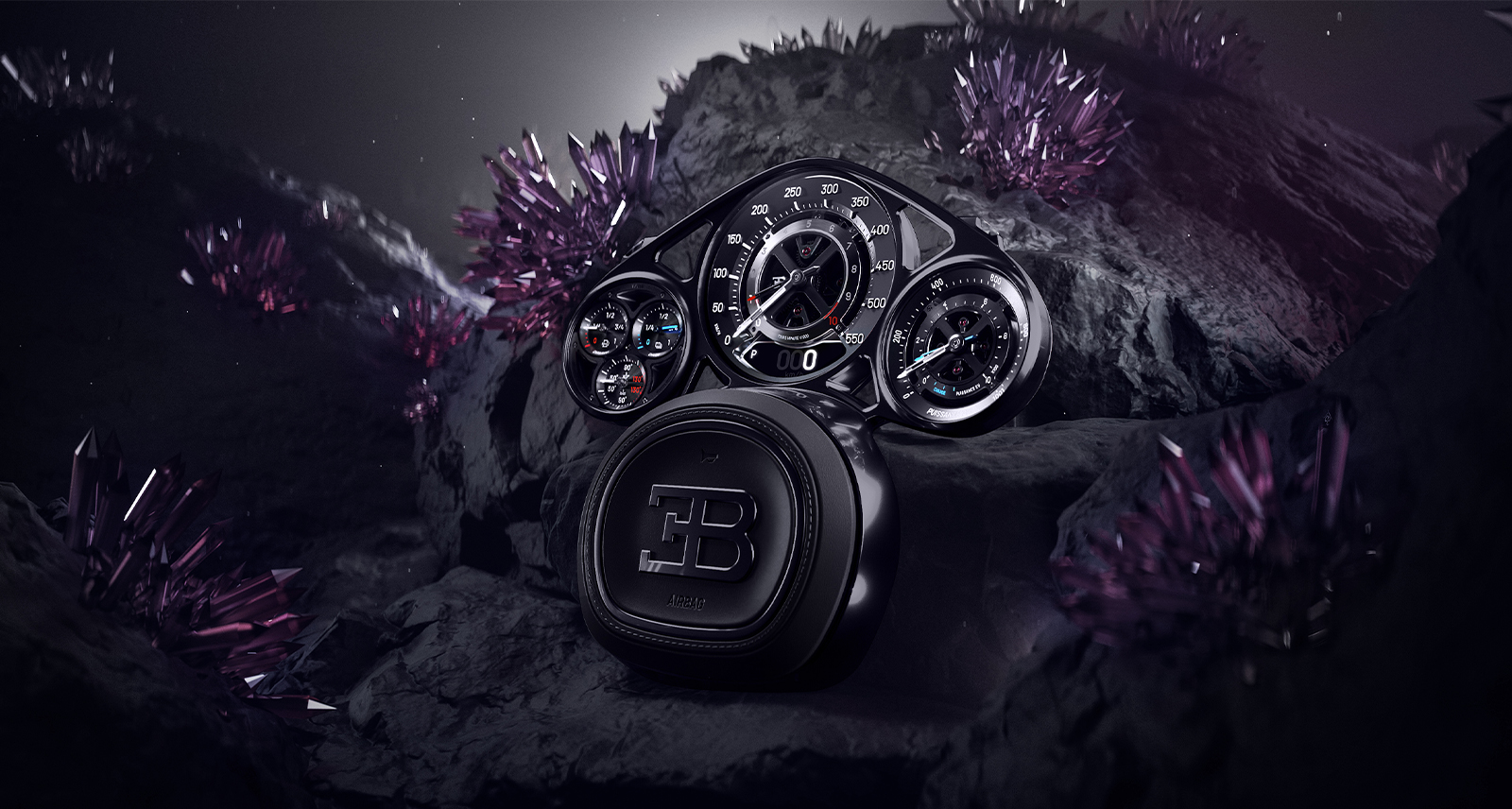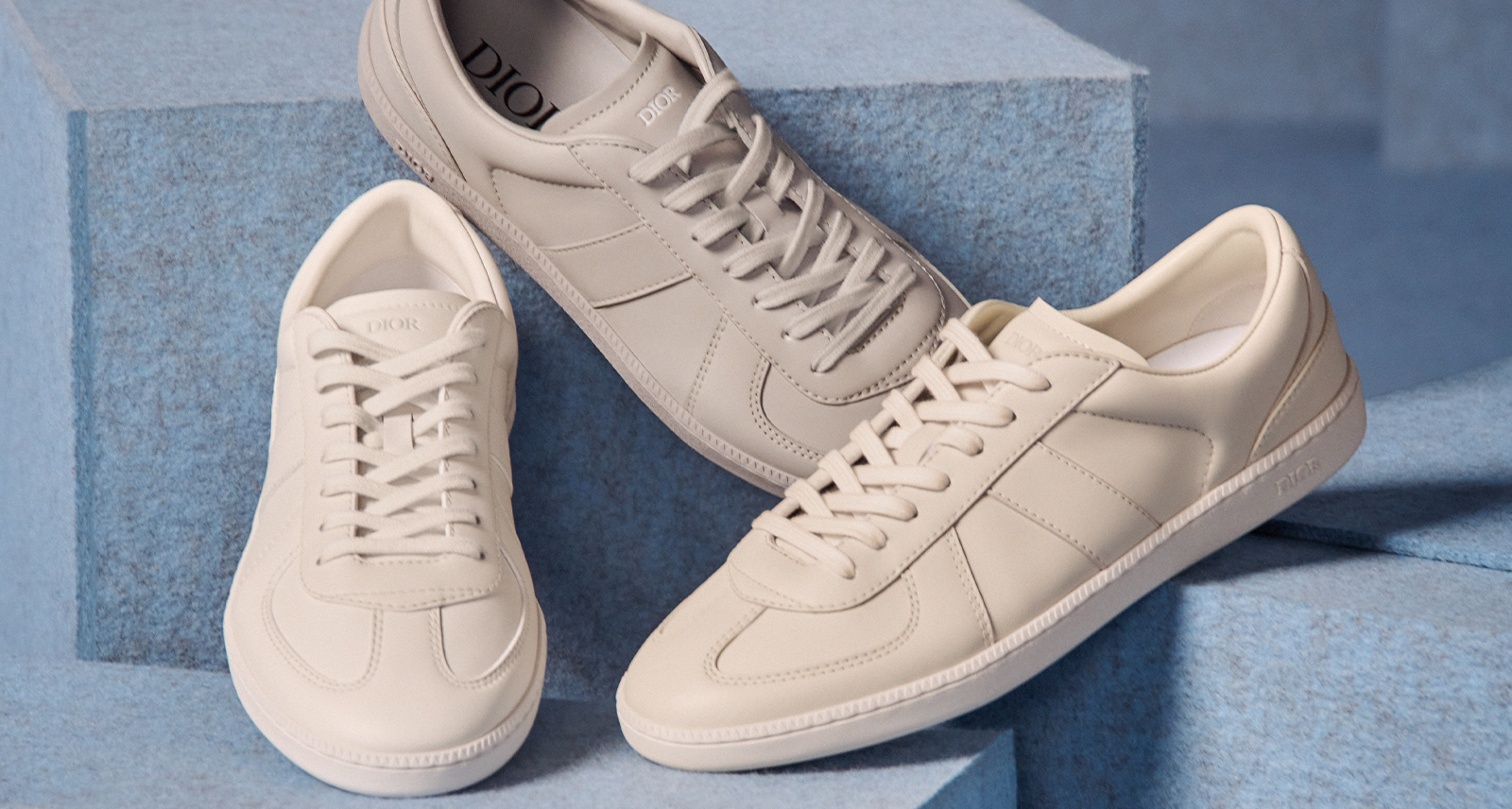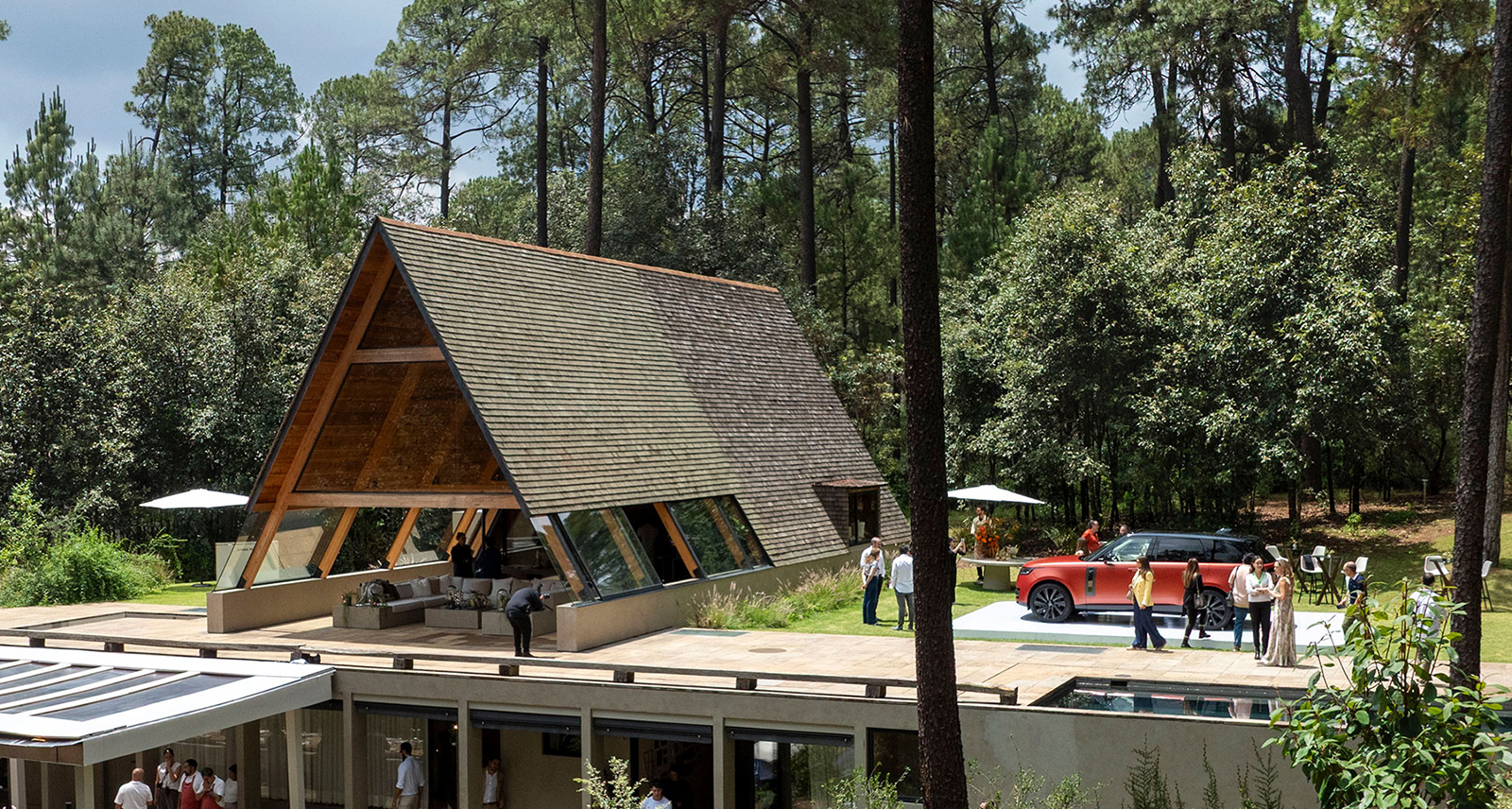On The Forgotten Isle of Jura, A Whisky Distillery Like No Other
Islay, Speyside, The Highlands: these regions all brim with rich lore surrounding whisky production, but there’s nowhere quite like the Isle of Jura. It sits off Scotland’s West Coast, to the northeast of Islay and across the Caol Ila — a swift strait with a treacherous current, braved regularly by only a single ferry. The journey isn’t long, but travellers without iron constitutions might struggle with the toss and tumble of the often rough passage. While writing his seminal work 1984, novelist George Orwell spent just shy of three years visiting Jura, and called the island “unforgettable,” but also “un-get-at-able.” Once you reach its shores, you’ll understand that sentiment — as the sense of seclusion is palpable.
A single road connects the ferry’s slipway to the Jura distillery, and along its twists and turns you’re more likely to come across one of the island’s 6,000 red deer than you are to spot a fellow motorist. The human population of Jura runs barely north of 200 and, in the island’s main settlement — the east coast village of Craighouse — you’ll find only a solitary pub and two hotels with less than 30 rooms combined. This isn’t a tourism hot spot, nor a bustling urban centre, but rather an isolated community determined to preserve its whisky-making heritage, come hell or high water.
It’s a tradition built on almost two centuries of expertise, as the first distillery in Craighouse was established by the Campbell clan in 1810. It soon fell into disrepair, however, with the wealthy Campbells much-maligned by the local workforce. The distillery traded hands, and was registered as the “Isle of Jura Distillery” in 1831. Yet its problems persisted, and the distillery was shuttered and dismantled in the early 20th century, only to be reborn in its present form in 1963. By then, the island’s population had dwindled, but a new distillery was hailed as a possible path back to prosperity.
Today, the island stands as strong as it’s ever been. The distillery runs its four tall stills 24-7, and produces more than two million litres of whisky every year: seven core expressions, and an assortment of travel retail exclusives. Previous limited-edition whiskies bore names derived from island folklore, including Superstition, Origin, and Prophecy. But, more recently, the distillery has tapped into local talent to create its rich and complex Islander’s Expressions series, with flavour profiles and packaging guided by regional artists.
Unlike the whiskies produced on nearby Islay, Jura’s expressions are primarily unpeated, and closer in style to those that hail from the Highlands. And, while only around five per cent of Jura’s whiskies use peated barley, these smokier distillates help master blenders Gregg Glass and Richard Paterson OBE create the spirit’s distinctive character. The tall stills, American oak ex-bourbon casks, and filtered fresh water from the island combine to create a distinct, cohesive Jura flavour — one that captures the spirit of the distillery’s remote, natural location.
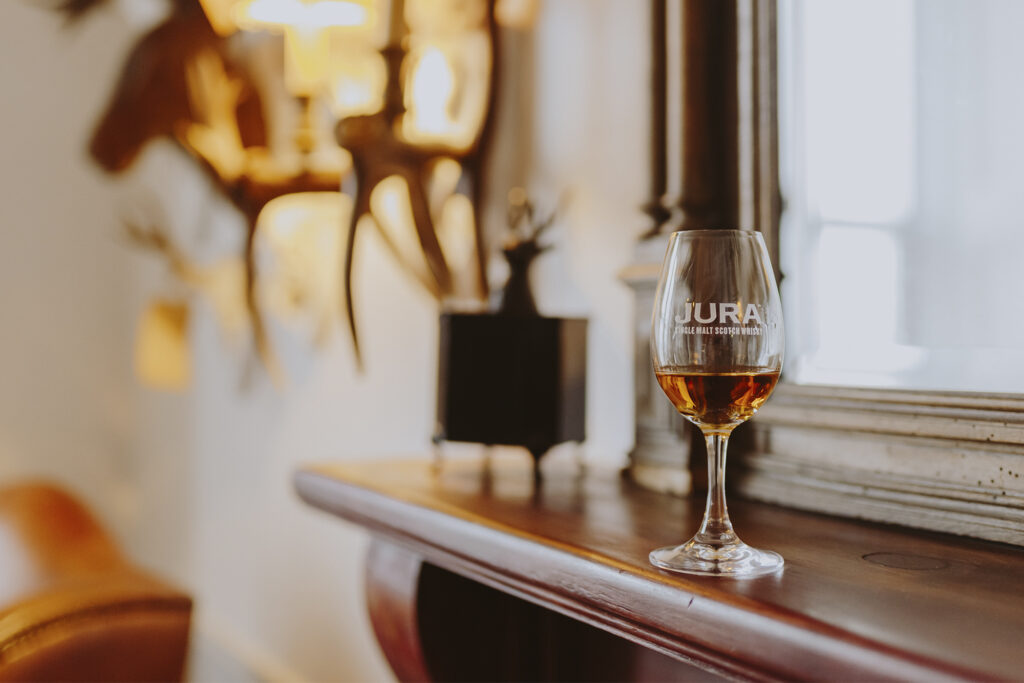
Because standing on wild Jura, with golden fields to the west and a roaring sea to the east, the words of Orwell ring true. It may feel “un-get-at-able,” but once you have arrived, it offers something of a respite: from the buzz of tourist shops, from bustling restaurant dining rooms, from the onslaught of emails and constant connection. It’s a side of Scotland well worth seeing — and throws a dram worth drinking into the bargain.

